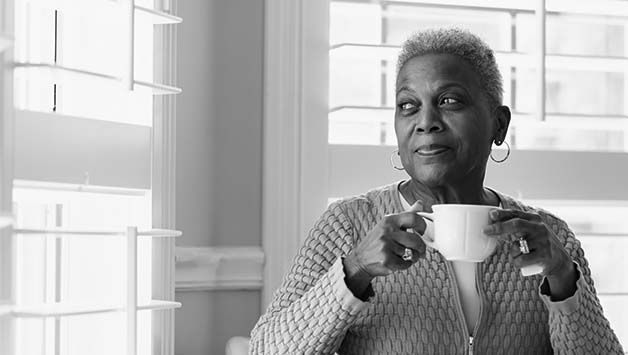
Growing older comes with challenges that you may expect. But one surprise may be the loneliness that can result from life’s changes. Social isolation can occur from small gradual changes, like declining vision and hearing causing you to stay home more, to large life events, like the loss of loved ones. These events can unfortunately lead to depression or even physical illnesses.
Although the risks for social isolation and loneliness increase with age, that doesn’t mean you have to experience depression and physical illness or live with them long term.
Research shows that social isolation (34%) and loneliness (37%) affect too many seniors. These reasons may explain why depression and older adults often go hand in hand. Up to 5% of seniors experience “major depression.” That percentage more than doubles for those who are hospitalized or receive home health care.
Depression itself can produce such physical discomforts as headaches, stomachaches, and chest pain. Without intervention and proper care, the issues can escalate. Social isolation and feeling lonely are linked to a near 30% increase in risk for developing heart disease or having a stroke, among other concerns. To help know if you’re at risk, consider:
If you experience social isolation, it means you lack relationships and the support of others. While you may choose to live this way, you should know that you’re still vulnerable to depression and other ailments. For example, without social interaction, your brain matter may decrease, leading to cognitive decline and a greater risk for dementia. This is even if you don’t experience loneliness, which is different from social isolation.
When you’re lonely, you may not actually be alone, but you feel alone. That’s because your relationships lack the quality or depth you desire. This can cause stress, which raises your cortisol hormone and your risk of type 2 diabetes.
Whether you’re alone or lonely, you may not be motivated to exercise. You may instead choose to consume alcohol or use other substances. You may also be unable to get good sleep. All these problems affect your mental and physical well-being. But you can combat social isolation and depression to protect your health.
It’s easy to let the days slip by without taking the time to see or speak to others. But if you schedule a phone call or in-person visit, you may be more likely to maintain communication. Try to make time for high-quality friendships that offer support and help safeguard your mental well-being. But any social interaction can help keep your brain sharp.
A study reports that older adults with a hobby are happier and more satisfied with life than those without one. Having a hobby also keeps your brain healthy since you may need to think critically or creatively. Photography, cooking, or knitting are some examples of hobbies for seniors. Plus, when you’re a member of a group for your activity, you get the added benefit of social interaction.
Exercise is among the top health tips due to its ability to strengthen not only your body but also your mind. Plus, exercising with others can help you feel less lonely and more connected. Yoga, water aerobics, tai chi, and walking are a few ideas to consider.
Download the free guide "4 types of exercises that are important over 50" >
A study finds that older adults who volunteer 100 hours per year — less than two hours a week — are less likely to experience loneliness. Yet, no matter how much time you devote to helping others, you’re likely to enjoy a sense of purpose and reduced stress, which can lower your risk for depression.
When symptoms of loneliness or depression leave you unable to do any of these things, please seek the help of a professional. Your primary care physician is a great place to start. They may offer resources, such as a counselor or grief support group, depending on your needs.
Photo credit: iStock
Search for grief support resources, such as in-person groups, online forums, and phone hotlines, available in your area.
Wellabe offers life and supplemental health insurance plans to help you prepare for good days and bad. We’ll always be here to empower you to be well — well prepared, well protected, and well loved.